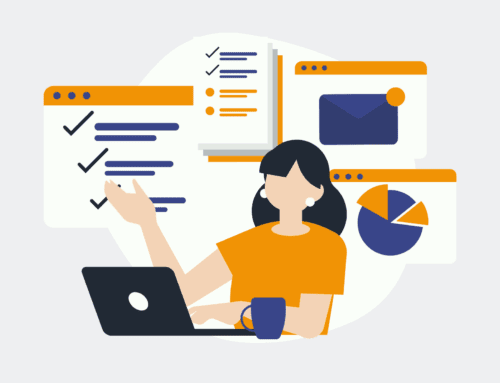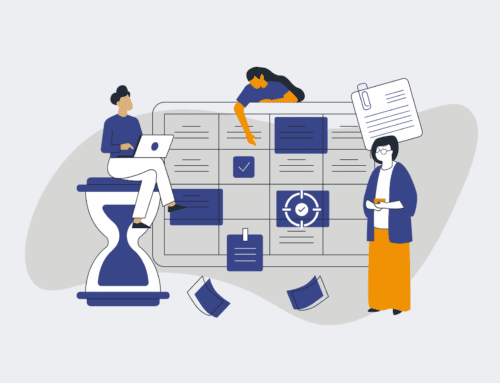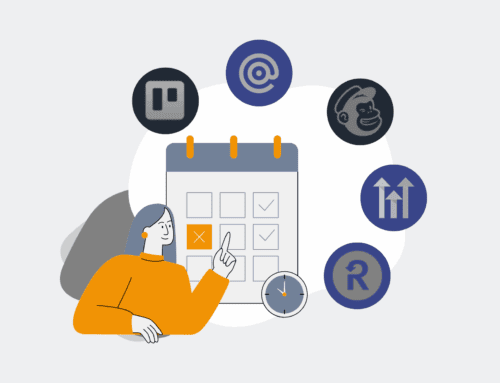11 Transformative AI Applications Revolutionizing HR and Recruiting for Strategic Leaders
The landscape of HR and recruiting is undergoing a seismic shift, driven by the relentless pace of technological innovation, particularly in Artificial Intelligence. For strategic leaders in HR, talent acquisition, and operations, understanding and leveraging AI isn’t just about staying competitive; it’s about fundamentally reshaping how we attract, develop, and retain top talent, while drastically improving operational efficiency. The traditional manual processes, rife with human error and time-consuming bottlenecks, are no longer sustainable in a world that demands agility and precision.
At 4Spot Consulting, we’ve witnessed firsthand how a strategic approach to automation and AI can eliminate up to 25% of an employee’s day spent on low-value tasks. This isn’t about replacing human judgment; it’s about augmenting it, freeing up your high-value employees to focus on strategic initiatives that truly impact the bottom line. This article will unpack 11 practical, real-world applications of AI that HR and recruiting professionals can implement today to drive tangible outcomes, from reducing time-to-hire to enhancing employee experience. We’ll explore how these tools provide actionable insights, streamline workflows, and ultimately, build a more robust and responsive workforce.
1. Streamlined Candidate Sourcing and Intelligent Matching
One of the most significant time sinks in recruiting is the initial sourcing and qualification of candidates. Traditional methods often involve endless searches across multiple platforms, keyword matching, and manual review of hundreds of profiles, leading to burnout and missed opportunities. AI fundamentally transforms this. Advanced AI algorithms can now scour vast databases – job boards, professional networks, internal CRMs – to identify passive and active candidates who not only match specific skill sets but also align with cultural fit indicators. These systems learn from past successful hires, identifying nuanced patterns and preferences that human recruiters might overlook. For example, AI can analyze a candidate’s project portfolio, contributions to open-source initiatives, and even online sentiment to provide a holistic view beyond the resume. This capability drastically reduces the initial screening time, allowing recruiters to focus their energy on engaging with truly promising leads. Imagine reducing the time spent on initial candidate identification by 50% or more, allowing your team to build deeper relationships with a smaller, highly qualified pool. This also enhances diversity by mitigating unconscious bias often present in manual screening, as AI focuses purely on objective criteria and performance indicators rather than subjective interpretations.
2. Automated Resume Screening and Parsing with Enhanced Accuracy
The volume of applications for any given role can be overwhelming, making manual resume review a tedious and often inconsistent process. AI-powered resume screening tools parse and extract key information from resumes with incredible speed and accuracy, far surpassing what human eyes can achieve. These tools don’t just look for keywords; they understand context, identify quantifiable achievements, and categorize skills based on their relevance to the job description. For instance, an AI system can identify a candidate’s experience with “Python” and “machine learning” and understand their proficiency levels based on project descriptions, rather than just a simple keyword match. This enables instant ranking of candidates based on predefined criteria, flagging top contenders while filtering out those who clearly don’t meet the minimum requirements. Furthermore, these systems can integrate directly with your applicant tracking system (ATS) and CRM, enriching candidate profiles with structured data that is easily searchable and analyzable. The benefit here is twofold: significantly faster processing times and a more objective, data-driven approach to shortlisting, minimizing human error and ensuring that no qualified candidate is accidentally overlooked in a sea of applications. This automation is a cornerstone of efficiency, saving valuable hours that can be reallocated to candidate engagement.
3. AI-Powered Interview Scheduling and Coordination Optimization
The logistical nightmare of coordinating interviews across multiple stakeholders – candidates, hiring managers, and interview panels – is a universal pain point in recruiting. Manual scheduling involves endless email chains, calendar juggling, and frequent rescheduling, consuming significant administrative time. AI-powered scheduling tools automate this entire process. These systems integrate directly with calendars, allowing candidates to select available slots that work for all parties. They can send automated reminders, handle rescheduling requests, and even account for time zone differences seamlessly. For example, a candidate receives a link, clicks their preferred time, and the system automatically books the room, sends calendar invites to all interviewers, and prepares pre-interview materials. Beyond simple scheduling, some AI tools can even suggest optimal interview sequences or panel compositions based on past feedback and hiring success rates. This automation significantly reduces administrative burden, improves the candidate experience by making the process smoother and faster, and ensures that interviews happen on schedule, accelerating the overall time-to-hire. It’s a prime example of how AI eliminates low-value, repetitive tasks, freeing up recruiters for high-value interactions.
4. Personalized Candidate Engagement and Communication at Scale
In today’s competitive talent market, a personalized and engaging candidate experience is paramount. However, manually tailoring every communication for every applicant is impossible at scale. AI bridges this gap. From initial outreach to post-interview follow-ups, AI can generate personalized emails, messages, and even chatbot interactions based on a candidate’s profile, application stage, and expressed interests. For instance, an AI chatbot can answer common FAQs about the company or role 24/7, providing instant responses and a positive first impression. Similarly, an AI system can analyze a candidate’s resume and publicly available information to craft a highly relevant introductory email, highlighting specific projects or skills that align with the role. This level of personalization, while automated, makes candidates feel valued and understood, significantly improving engagement rates and reducing ghosting. It ensures consistent, timely communication throughout the hiring funnel, reinforcing your employer brand. This isn’t just about efficiency; it’s about building stronger relationships with potential hires, showcasing a forward-thinking and responsive organization right from the start of their journey.
5. Predictive Analytics for Employee Retention and Turnover
High employee turnover is a costly problem for any organization, impacting productivity, morale, and recruitment budgets. AI offers powerful predictive capabilities that can identify employees at risk of leaving before they even consider resigning. By analyzing a wide range of HR data – including performance reviews, compensation, tenure, promotion history, engagement survey results, and even sentiment analysis from internal communications – AI algorithms can detect patterns and indicators associated with future turnover. For example, an AI system might flag an employee who hasn’t received a promotion in a certain period, whose salary falls below market rate, or whose engagement scores have subtly declined. This allows HR leaders to intervene proactively with targeted retention strategies, such as mentorship programs, skill development opportunities, compensation adjustments, or career path discussions. These insights move HR from a reactive to a proactive function, significantly reducing attrition rates and the associated costs of replacing talent. It empowers leaders to make data-driven decisions about their workforce, fostering a more stable and engaged employee base, which is crucial for long-term strategic success and organizational stability.
6. AI in Onboarding and Enhancing Employee Experience
A smooth and engaging onboarding process is critical for new hire success and retention. AI can significantly elevate this experience, making it more personalized, efficient, and impactful. Beyond automating paperwork, AI-powered tools can serve as intelligent guides, providing new hires with instant access to information, resources, and answers to common questions. Imagine an AI chatbot that can walk a new employee through company policies, help them set up their benefits, or even suggest relevant internal networks based on their role and interests. AI can also personalize learning paths during onboarding, recommending training modules and resources based on a new hire’s specific needs and career goals. Furthermore, AI can monitor early-stage employee sentiment through brief check-ins or anonymous feedback, identifying potential issues before they escalate. This proactive approach ensures new hires feel supported, integrated, and productive faster, reducing early turnover. It transforms onboarding from a bureaucratic hurdle into a dynamic, personalized journey that sets the stage for long-term employee success and engagement within the organization, contributing to a positive overall employee experience from day one.
7. Skill Gap Analysis and Personalized Learning Path Personalization
The rapid evolution of industries demands that workforces continuously upskill and reskill. Identifying current and future skill gaps at an organizational level, and then addressing them effectively, is a complex challenge. AI provides a robust solution by analyzing employee data (performance reviews, project assignments, training completions) against industry trends and future business needs to pinpoint critical skill gaps. For example, AI can identify that a significant portion of your marketing team lacks proficiency in a newly emerging analytics platform. Crucially, AI can then personalize learning paths for individual employees. Based on their current skills, roles, and career aspirations, AI can recommend specific courses, certifications, mentorship opportunities, or internal projects. This ensures that training efforts are highly targeted and impactful, maximizing ROI on learning and development initiatives. It moves beyond generic training programs to create a bespoke development journey for each employee, fostering continuous growth and ensuring your workforce possesses the capabilities needed for future success. This proactive approach to skill development is essential for maintaining a competitive edge and adapting to market changes.
8. Automating HR Help Desks and FAQs with Conversational AI
HR departments often spend a disproportionate amount of time answering repetitive questions about policies, benefits, payroll, and internal processes. This not only consumes valuable HR bandwidth but also leads to delays for employees seeking urgent information. Conversational AI, in the form of intelligent chatbots or virtual assistants, can revolutionize the HR help desk. These AI systems can be trained on your company’s knowledge base, policies, and FAQs, providing instant, accurate answers to a wide range of employee queries 24/7. For example, an employee needing to know about parental leave policy, how to submit an expense report, or the deadline for open enrollment can get immediate assistance without waiting for an HR representative. When a query is too complex for the AI, it can seamlessly escalate the issue to a human HR specialist, providing them with all the context of the prior conversation. This automation drastically reduces the workload on HR teams, freeing them to focus on more strategic, complex, and empathetic employee issues. It also significantly improves employee satisfaction by providing immediate access to information, making HR support more accessible and efficient for everyone.
9. AI for Performance Management and Objective Feedback
Performance management can often be subjective, time-consuming, and inconsistent, leading to frustration for both employees and managers. AI offers tools that can inject objectivity and efficiency into this critical HR function. AI can analyze various data points related to performance – project completion rates, sales figures, customer feedback, and even peer reviews – to provide a more holistic and objective view of an employee’s contributions. While human managers still provide qualitative feedback, AI can highlight trends, identify areas for improvement based on quantifiable metrics, and even suggest personalized coaching tips. Some AI tools can analyze written feedback for sentiment and constructive language, helping managers craft more effective and unbiased reviews. Furthermore, AI can assist in setting SMART goals by suggesting relevant metrics and tracking progress automatically. This leads to fairer, more transparent, and more actionable performance discussions, helping employees understand where they excel and where they need to develop. By streamlining the data collection and analysis, AI empowers managers to spend more quality time coaching and developing their teams, rather than struggling with administrative review processes.
10. Ethical AI Implementation and Bias Mitigation in HR
While AI offers immense potential, there’s a crucial need to address its ethical implications, particularly concerning bias. AI systems are only as unbiased as the data they are trained on. If historical hiring data reflects existing biases (e.g., favoring certain demographics), an AI system trained on that data will perpetuate and even amplify those biases. Strategic HR leaders must proactively implement measures to mitigate bias in AI. This involves carefully curating diverse training datasets, regularly auditing AI algorithms for fairness, and implementing transparent monitoring systems. For example, specific AI tools are designed to identify and flag gender-biased language in job descriptions or resume screening, suggesting neutral alternatives. Moreover, it’s essential to maintain human oversight and intervention points, ensuring that AI recommendations are always reviewed by a human expert who can apply ethical judgment. Focusing on explainable AI (XAI) models, which provide clarity on how decisions are made, further promotes trust and accountability. Implementing AI ethically isn’t just a compliance issue; it’s a strategic imperative for building a fair, diverse, and inclusive workforce that reflects the values of your organization and avoids costly reputational damage.
11. Data-Driven Decision Making with Advanced HR Analytics
The true power of AI in HR lies in its ability to transform raw data into actionable intelligence. Beyond individual applications, AI platforms can aggregate and analyze HR data from disparate systems – ATS, HRIS, payroll, performance management, engagement surveys – to provide a comprehensive, real-time view of your workforce. This allows HR leaders to move beyond descriptive reporting (“what happened?”) to predictive (“what will happen?”) and prescriptive (“what should we do?”). For instance, AI can correlate training investments with performance improvements, identify the most effective sourcing channels based on retention rates, or predict future staffing needs based on business growth forecasts and anticipated attrition. These advanced analytics empower strategic decision-making across all HR functions, from workforce planning and talent management to compensation and benefits strategy. Instead of relying on gut feelings or outdated reports, HR leaders can make informed choices backed by robust data, optimizing investments, improving outcomes, and directly contributing to organizational success. This shift to data-driven HR is foundational for building an agile, high-performing workforce that supports the overall strategic objectives of the business.
The integration of AI into HR and recruiting is no longer a futuristic concept; it’s a present-day reality offering unparalleled opportunities for efficiency, strategic insight, and enhanced employee experience. For HR and recruiting professionals, the imperative is clear: embrace these tools not as replacements for human expertise, but as powerful augmentations that free up valuable time and provide data-driven clarity. From automating routine tasks to delivering predictive insights, AI empowers your team to shift from administrative burdens to strategic impact, driving better hiring outcomes and cultivating a more engaged workforce. At 4Spot Consulting, we specialize in helping high-growth B2B companies strategically implement these very solutions, ensuring that your AI and automation initiatives are tied directly to ROI and business outcomes. The future of HR is intelligent, and the time to build that future is now.
If you would like to read more, we recommend this article: The Future of AI in Business: A Comprehensive Guide to Strategic Implementation and Ethical Governance









